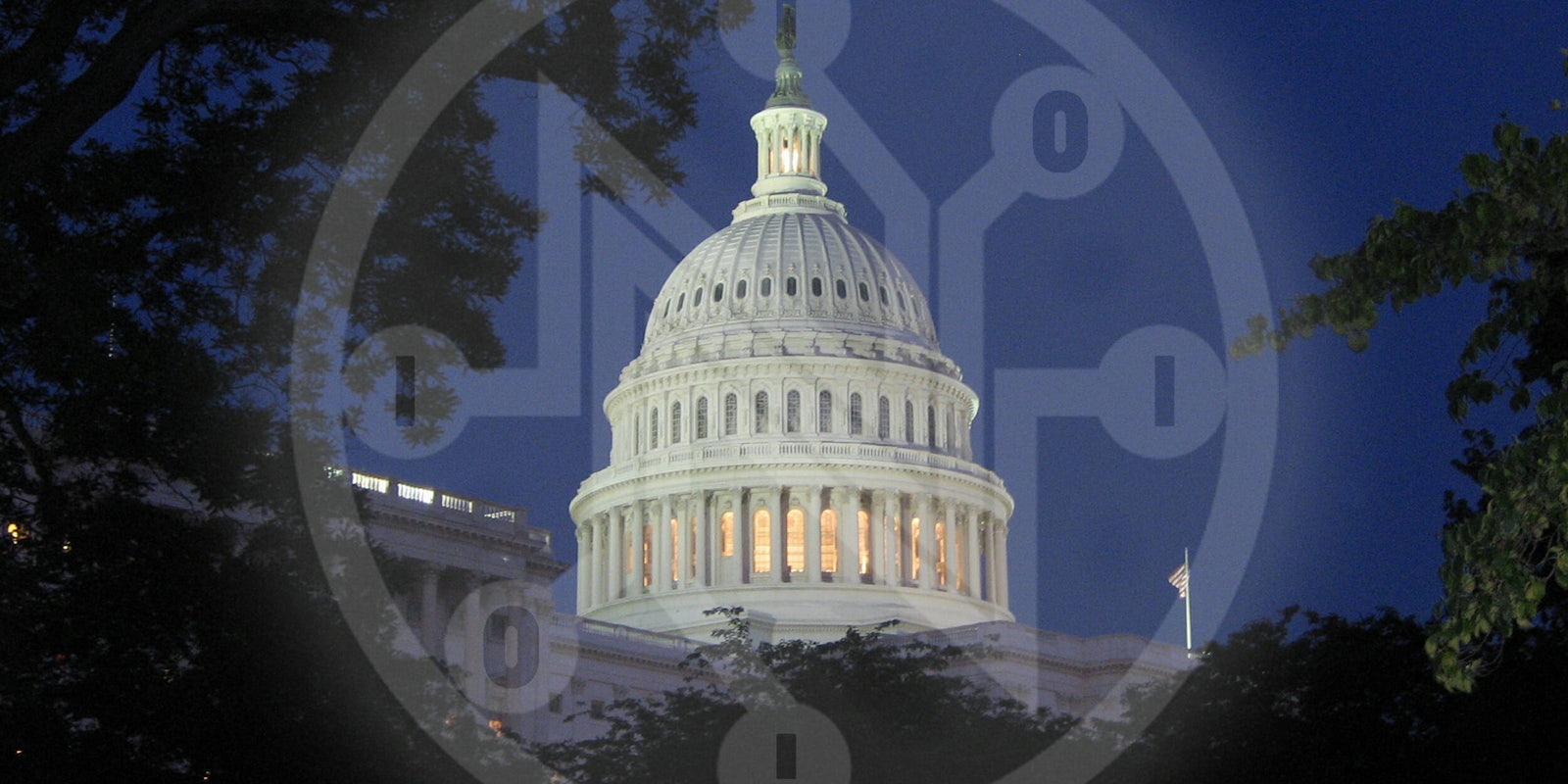After months of trying to gather the necessary number of votes, an effort in Congress to overturn the Federal Communications Commission‘s (FCC) decision to rescind net neutrality rules appears over.
Members of Congress tried to use the Congressional Review Act (CRA) to overturn the FCC’s decision—but after a win in the Senate earlier this year, not enough members of the House of Representatives signed onto the effort to force a vote.
The CRA gives Congress the ability to reverse decisions made by federal agencies in a certain time frame. If it passed through both chambers of Congress, the president would need to sign it before becoming official. Next week, a new Congress will take over, and the CRA cannot be revived by a Democratically-controlled House.
In May, the Senate was able to pass its version of the CRA, led by Sen. Edward Markey (D-Mass.), with bipartisan support after several Republicans broke ranks and joined their effort.
Since then, Rep. Mike Doyle‘s (D-Penn.) CRA effort in the House had slowly been getting support from lawmakers. Ultimately 182 members of the House signed onto a “discharge petition,” leaving it 36 votes short of getting the 218 votes (a simple majority) to force a vote.
Unlike the Senate, where several Republicans signed onto the CRA, only one Republican in the House joined the effort. There was a lull in signatures over the summer, until late November, with five lawmakers (all Democrats) signing onto the petition in the last month as the deadline drew near.
The deadline for the CRA was originally set for early December, but as Congress debated a potential government shutdown, the window for it to pass was extended. The extra weeks were only able to add a handful of lawmakers to the discharge petition.
As the deadline inched closer, some internet rights advocacy groups had ramped up public pressure on Democrats who had yet to sign onto it.
Despite the CRA not reaching the needed vote threshold, internet rights advocates appear optimistic about net neutrality moving forward.
“We’re feeling pretty good about where things are at,” Evan Greer, the deputy director of Fight for the Future, told the Daily Dot. “We finished out 2018 strong with a huge upset victory in the Senate, an epic law passed in California, and a historic number of House lawmakers on the record in support of real net neutrality protections.”
Now advocates for net neutrality will likely look toward ongoing lawsuits as a way of restoring the rules. More than 20 attorneys general from across the country are challenging the FCC’s decision and several major tech companies have filed petitions against the order. Several states have also used executive orders and laws to create their own net neutrality rules, but they have faced pushback back from the federal government.
Another option is legislation, even though some internet rights advocates have cautioned against that. Ultimately, if Democrats take back the White House after the 2020 presidential election, a new FCC could also simply reinstate net neutrality.
Federal authorities are also looking into millions of fraudulent comments left during the FCC’s public comment period ahead of its vote to rescind the rules.
“Next year we’ll continue to fight for net neutrality, internet privacy, and free speech in Congress, in the states, and beyond,” Greer said. “We’ll need to harness the power of the internet to crush any attempts by ISP lobbyists to push trojan horse legislation that claims to save net neutrality while really undermining it. We’ll be pushing for the House to conduct real oversight of the FCC, and investigate their reckless disregard for the democratic process during the repeal.”
READ MORE:
- Democrats want answers from wireless carriers after alleged throttling
- For marginalized communities, net neutrality is about way more than Netflix
- Study: 99.7 percent Of FCC comments were in favor of net neutrality


